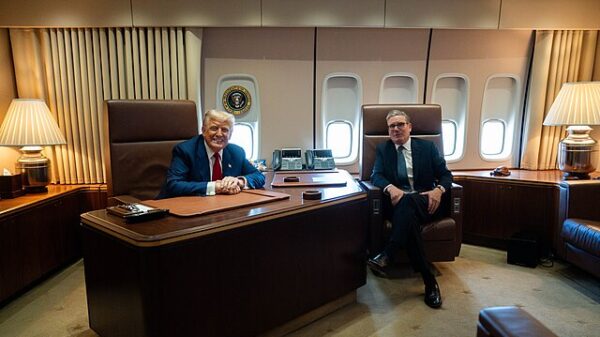In February this year, Lieutenant General Jonathon Riley left his role as a visiting professor in the Department of War Studies at King’s College London (KCL), after disagreements with postgraduate students studying Contemporary War and Warfare, students in the module told Roar.
During a lecture delivered by Riley, the question of how to free up extra money in the budget for defence was raised. Students present told Roar that Riley proposed a series of cost-cutting measures, including withdrawing from international organisations and, controversially, expelling immigrants. Students present at the lecture told Roar that Riley said immigrants “contributed little to the country”.
A student told Roar that the atmosphere in the room shifted noticeably following Riley’s comments on immigration, noting that “he was speaking to an audience made up of around 60% international students, including military officers from abroad.”
Some students challenged Riley’s remarks immediately, with another student telling Roar, “I said what he [Riley] was saying was completely unfounded – we’re in this class full of immigrants. But he cut me off about a minute in, saying, ‘Get to the point, I don’t want to talk about politics.'”
A senior member of the Department of War Studies later told students that Riley was “severing all contact [with] King’s” for “a range of reasons” including “the reception he received from this class during his two lectures here.”
Speaking to Roar, another student reflected on Riley’s departure with a mix of criticism and disappointment:
“It’s a shame really that he’s no longer going to be called in as a guest speaker. Even if I may disagree, he should be allowed to speak.”
They noted that while they took issue with his views, “I didn’t feel as though any of the interactions from students towards him were malicious – just calling him out on what he said.”
The student also expressed surprise at Riley’s reaction to being challenged:
“If a military general can be shaken up by a bunch of students… I don’t know what that implies.”
The student added, “He has every right to stand up on that stage and say whatever, but you open yourself up to criticism – especially in an academic environment. If you can’t take it and then kick up a fuss about it with the uni, that can come across as soft and insecure and honestly, quite funny.”
On the broader implications, they reflected:
“Even if I take personal offence to what he said, it’s unfortunate that he’ll no longer be a visiting lecturer. University is all about being exposed to new perspectives, whether you’re a student or a professor.”
According to his profile on KCL’s website, Lieutenant General Riley served in the British Army from 1973, with operational deployments in Northern Ireland, the Balkans, Iraq, Afghanistan and Sierra Leone. Over a distinguished career spanning 36 years, he held a range of command and advisory roles, including within NATO and coalition forces. He later served as Director-General of the Royal Armouries.
Outside of King’s, Riley has been active in conservative politics, initially joining the UK Independence Party (UKIP) in 2012, citing a “passionate” belief “in getting ourselves free from the tyranny of the European Union.”
He later left the party, saying it had “quite plainly lost its way.”
Riley rejoined UKIP in 2021, after former-leader Nigel Farage had left the party, becoming its Defence & Veterans Spokesman.
He is also a contributor to Veterans for Britain, a campaign group established to advance defence and security arguments for the UK’s withdrawal from the European Union and to give voice to military veterans and serving personnel in the Leave campaign.
As of publication, Riley’s profile remains accessible on the KCL website, where he is still listed as a visiting professor.
A spokesperson for King’s College London noted that “visiting appointments are not permanent roles and it is very usual for staff to move on for many reasons.”
Roar presented the details of this article to Lieutenant General Riley, who declined to comment.












